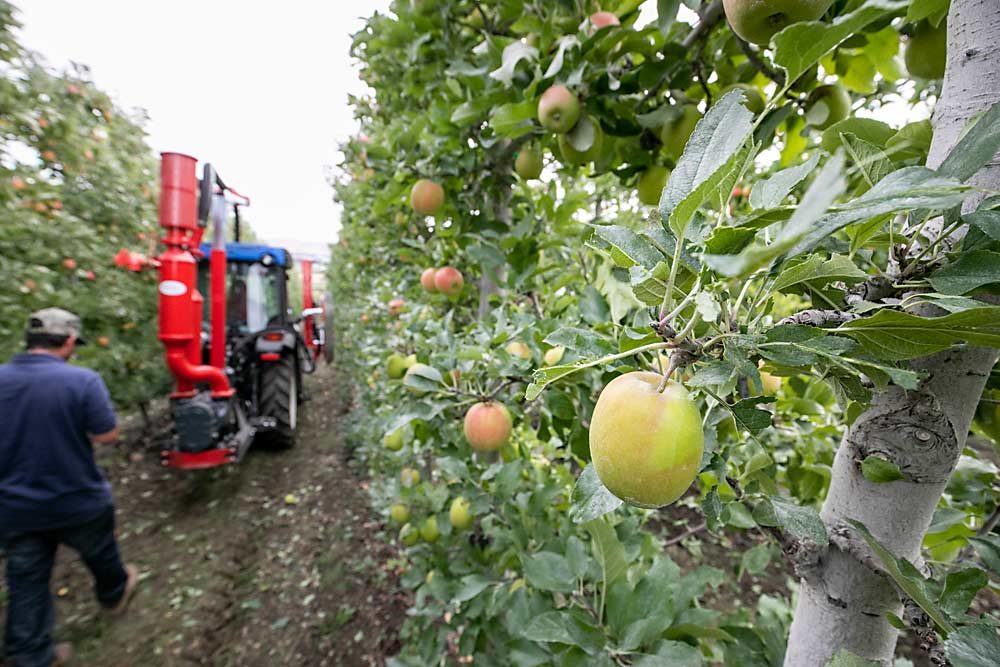
On a quest for better fruit color, growers invest in reflective fabrics and, in some cases, even leaf pulling, paying crews to strip leaves and expose fruit in the weeks before harvest. That’s expensive and time-consuming.
And that’s why Washington growers were very interested in demonstrations this fall of new pneumatic defoliators that use alternating pulses of air to strip off leaves and expose fruit to sunlight.
Two models made their Washington debut this year: one developed by German company Fruit Tec, best known in the tree fruit industry for the Darwin string thinner, and the other developed by Italian company Olmi.
“I’ve been waiting for this for so long,” said Washington State University Extension specialist Karen Lewis, who arranged the Fruit Tec demos after seeing the technology at an industry expo in Europe last winter. Growers who have been using leaf stripping know the physiological pros and cons, she said, but the new machines provide labor-saving mechanization.
“I’m a believer in de-leafing, but it’s expensive,” said Chris Peters, orchard manager for Valley Fruit Orchards, at a demo for Fruit Tec’s REDpulse Duo. He sees the greatest potential in Cripps Pink, which tends to lack color in the lower half of the tree. “Leafing gets the lower pick colored up, and the more you have ready to pick in October, the happier you are,” he said.
Greg Hamilton, owner of MGH Equipment, which is distributing the Olmi 501 F defoliator through Washington Tractor, said a couple of growers urged him to look into the leaf removal equipment last winter.
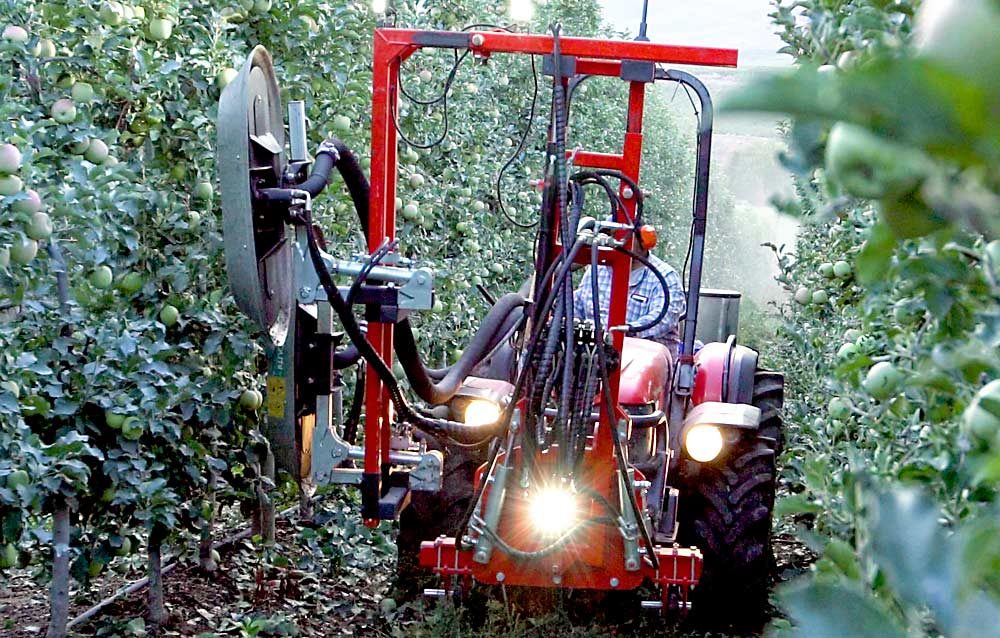
“They came to us and said, ‘We think this will revolutionize the industry,’” Hamilton said.
Wine grape growers have used pneumatic defoliation for canopy control for years, but the bursts of air generated by those machines weren’t powerful enough to be effective in apple orchards, where the leaves have a stronger attachment, said Jürgen Schmid, sales manager for Fruit Tec.
The company partnered with ERO, a German vineyard equipment manufacturer, to design a machine to improve apple color in Northern Europe’s orchards, he said.
Olmi also primarily serves the vineyard industry, but its new high-powered orchard defoliator sets up easily on the Antonio Carraro orchard tractors he also sells, Hamilton said.
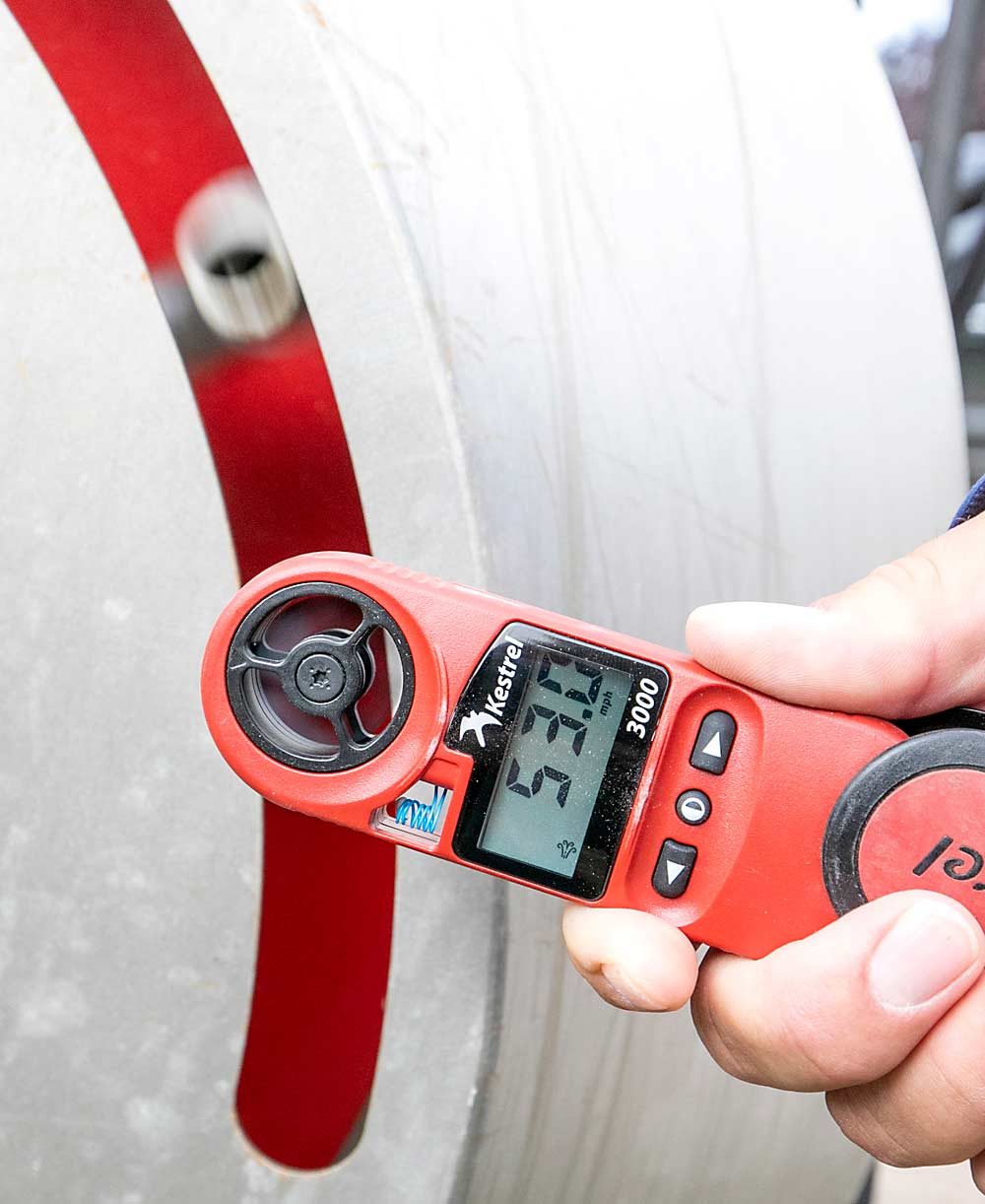
His two customers who tried the defoliator this fall, Gebbers Farms and Crane and Crane Orchards, both said the equipment enabled them to enhance color beyond the premium blocks where they’d previously invested in reflective fabric and leaf stripping.
“They’ve only done this on their highest-returning varieties, the only place they’ve been able to justify the cost and labor of this color-enhancing work,” Hamilton said. “What this machine has done, because it’s so fast, you can do it on more varieties.”
One grower reported a grade enhancement due to improved color after running the machine through a late Fuji block, Hamilton said. That’s a benefit they weren’t even looking for.
Grower Travis Allan said the Fruit Tec machine he tested looked very promising, compared to the $700 to $800 an acre he spends to have a crew remove leaves. If the fruit looked good a few days after the demo, he said he planned to buy one.
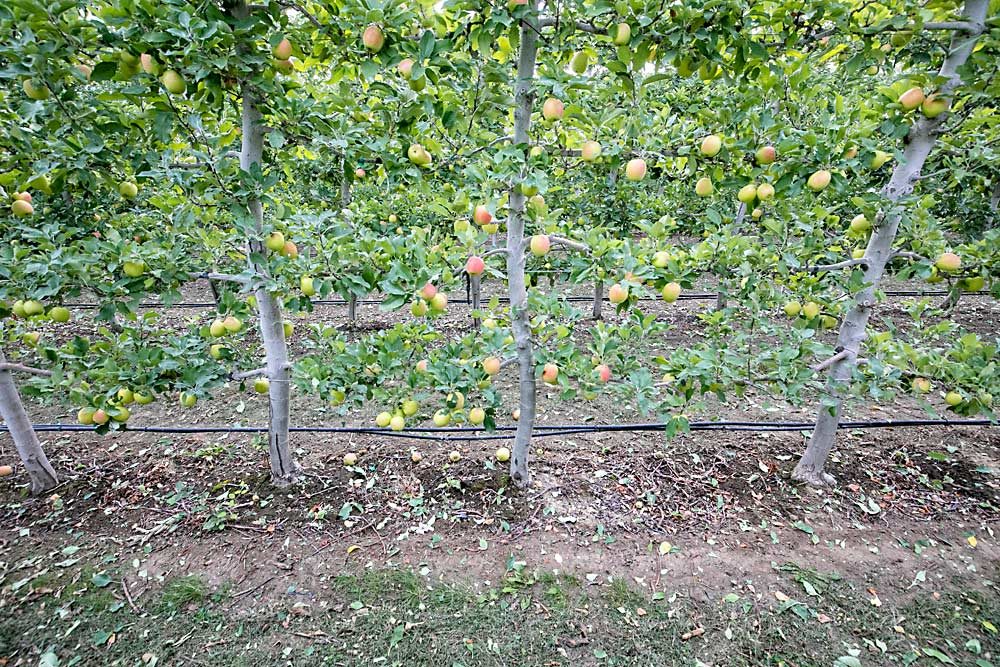
This year, the Fruit Tec defoliator cost $43,000, said Bryan Riel of Burrows Tractor, which is the licensed distributor in the Pacific Northwest. At that price, several growers at the demo estimated it would pay for itself in a season.
Hamilton declined to name a price for the Olmi equipment at press time, citing the variability of the Euro, but expects it will pay for itself quickly, compared to what growers are spending to color up fruit now.
It’s too soon to tell if the defoliator will eliminate the need for reflective fabric, but his customers hope it can replace that cost and labor, along with reducing the waste, he said.
The time savings may be the most significant benefit, with estimates that it could take one or two hours per acre to defoliate with the machines.
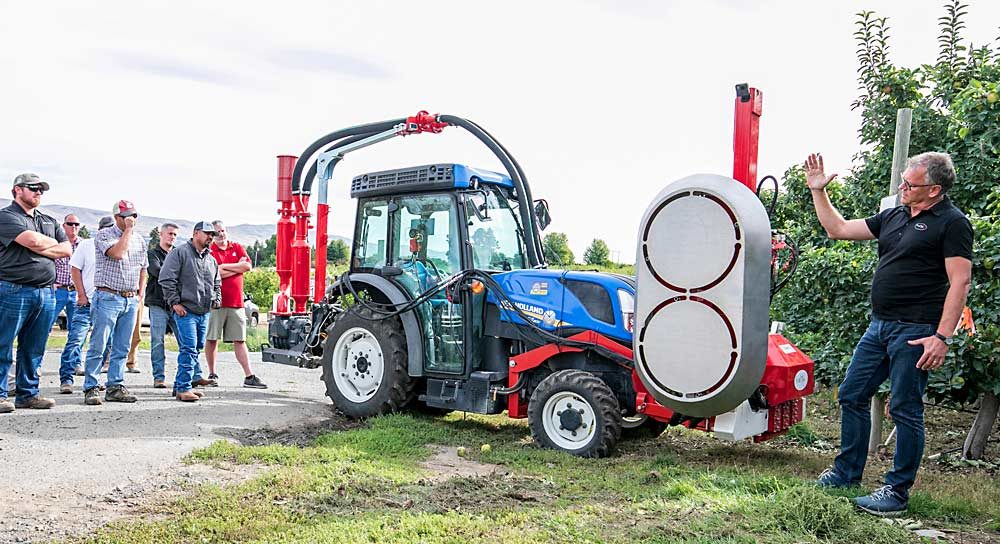
Both machines can adjust the position of the heads, so that they can adjust from a vertical trellis to a V-trellis and move up and down, allowing growers to do both the upper and lower portions of the canopy if they desire.
“Most customers say they are happy to do it in the lower part because that is their problem area, but some customers want to do everything,” Schmid said. However, doing the top and bottom would require two passes. •
—by Kate Prengaman



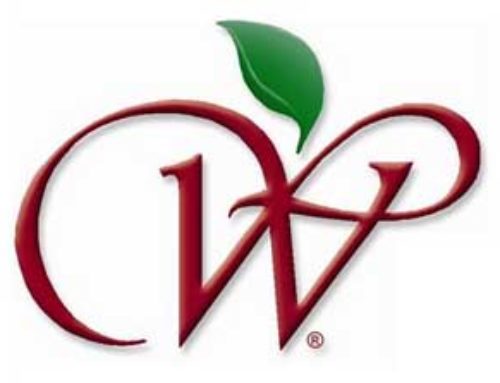


Leave A Comment